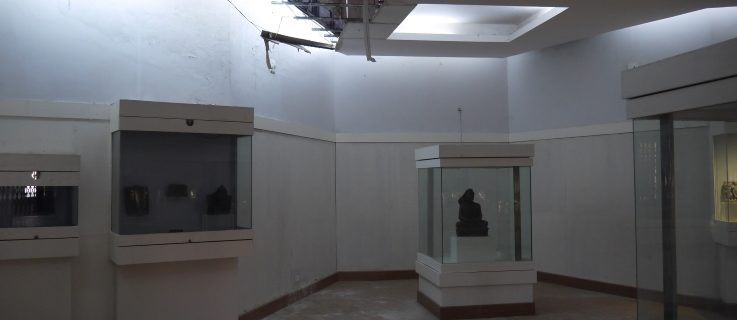Is history a project of memory? Is that memory constructed through an agency called archaeology? Is therefore the museum a corollary of archeology? Supposing there was no archaeology, can a museum be valid?
For me the problematic of the museum took shape when I read Jean Paul Sartre referring to the Louvre as ‘the department store of French culture’. That is when I really began thinking about museums. Until then there was this notion of an institution which, obviously, is central to any nation building project, carrying with it all the problematics of nationalism within it, but remaining at the margins of people’s consciousness. At least, in societies like India, one is made to look at it as an institution with a halo. For example, if I’m a visitor to Delhi from the hinterland, I’ll be given a list of places to go to. Number one may be the Rashtrapati Bhavan, the President’s residence. Number two will be the Parliament House which, of course, is the temple of Democracy. And the third is always the National Museum because that’s what gives you your identity. That’s what shapes you, tells you why you’re Indian and how you’re Indian and how old you are and what your context is and so on. So this is kind of drilled into you, even from school days. It is a kind of formation exercise. It, therefore, produces an aura. Even in your imagination, you encounter the museum as a place with some aura. You enter it as if you’re going into a church or a temple with a certain reverence and all those objects speak to you as the important building blocks of your past; almost like the DNA of your past. And you seldom are forced to ask questions about what its relevance is, besides its special location within your own nationalist premise. For me, this was the sort of space the museum occupied for a long time. Until one begins asking questions about the connection between museum and memory. Is history a project of memory? Is that memory constructed through an agency called archaeology? Is therefore the museum a corollary of archeology? Supposing there was no archaeology, can a museum be valid? And so on.
Download full article (English)
